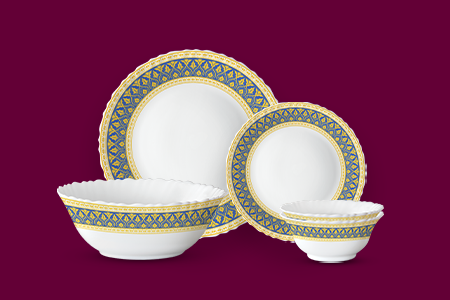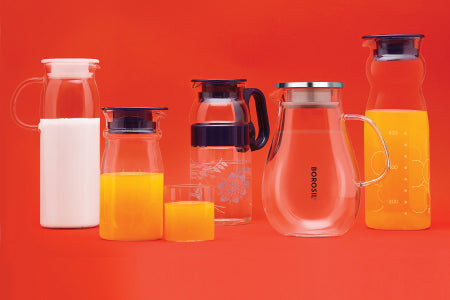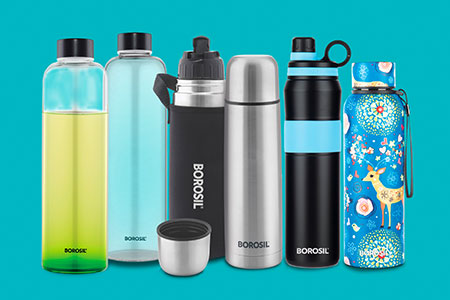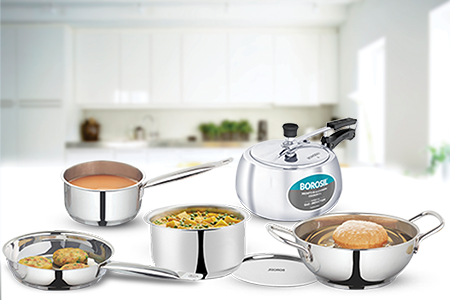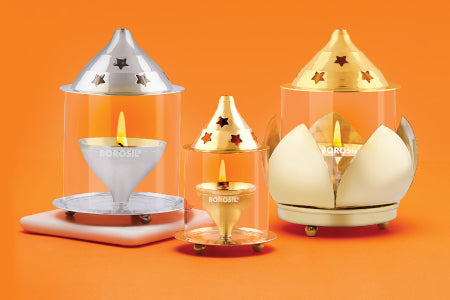
What Is Borosilicate Glass & Top Queries Related To It
What is borosilicate glass?
Borosilicate glass is a type of glass that is made from a combination of silica, boron oxide, alumina, and soda or potash. This combination of ingredients gives the glass its unique properties. One of the most notable properties is its low coefficient of thermal expansion. This means that it expands very little when exposed to heat, making it less likely to crack or break.
Another important property of borosilicate glass is its high chemical durability. It is resistant to a wide range of chemicals, including acids and alkalis. This makes it suitable for use in laboratory equipment, cooking and other applications where chemical resistance is important.
Additionally, borosilicate glass has a high resistance to thermal shock. This means that it can withstand large changes in temperature without breaking. This makes it suitable for use in cookware, such as oven-safe glassware and stovetop cookware.
Borosilicate glass is also known for its clarity and optical properties, which makes it a popular choice in applications like optical instruments, lighting fixtures and art glass.
Is borosilicate glass fragile?
Borosilicate glass is known for its low coefficient of thermal expansion and high resistance to thermal shock, which makes it less likely to crack or break when exposed to changes in temperature. This is one of the reasons why it is commonly used in laboratory equipment and cookware, as well as other applications where heat and chemical resistance are important. Additionally, its chemical durability also makes it resistant to a wide range of chemicals, such as acids and alkalis, which makes it the ideal choice for laboratory equipment.
Is borosilicate glass unbreakable?
No, borosilicate glass is not unbreakable. As aforementioned, it is known for its low thermal expansion and high resistance to thermal and chemical stress, it can still break or crack if it is exposed to excessive force or extreme temperatures. It is stronger than regular glass but it can still break or crack if it is dropped or hit hard. It is important to handle borosilicate glass with proper care to minimize the risk of breakage. It is a great material for laboratory equipment, cookware, and other applications where heat, chemical resistance, and durability are needed.
Can borosilicate glass be used in the microwave?
Yes, borosilicate glass can be used in the microwave. Its low thermal expansion and high resistance to thermal shock make it suitable for use in the microwave or oven, as it is less likely to crack or break when exposed to changes in temperature. However, it is important to use microwave-safe borosilicate glassware when using it in the microwave, as not all borosilicate glass is designed for microwave use.
It is also important to note that when using borosilicate glassware in the microwave, it should not be heated empty, or overheated, as it can cause the glass to crack or break due to thermal stress. Also, not all borosilicate glassware is suitable for the microwave, some of them have metal or plastic parts on them and should not be used in the microwave.
It is always recommended to check the instructions before using borosilicate glassware in the microwave.

How to tell the difference between soda lime and borosilicate glass?
Here are a few ways to tell the difference between soda-lime glass and borosilicate glass:
Thermal Expansion: Borosilicate glass has a lower coefficient of thermal expansion than soda-lime glass, which means it expands less when exposed to heat. This can be tested by heating a small piece of glass and observing how much it expands.
Weight: Borosilicate glass is generally denser and heavier than soda-lime glass.
Clarity: Borosilicate glass is known for its clarity, while soda-lime glass can have a slight green tint.
Hardness: Borosilicate glass is harder than soda-lime glass, which makes it more resistant to scratches and chips.
Optical properties: Borosilicate glass has better optical properties, it is used in applications such as optical instruments, lighting fixtures, and art glass.
Branding: Many borosilicate glassware is branded, Borosil is a well-known brand of borosilicate glassware.






